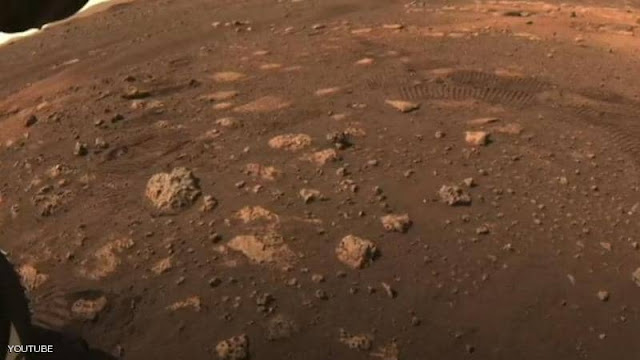Billions of years ago, Mars was home to lakes and oceans, but where all the water went, turning the planet into desolate rock, was mysterious.
It was believed that most of the water was lost in space, but a new study funded by the US Space Agency ( NASA ) suggests that it did not go anywhere, but rather that it is trapped inside the minerals in the planet's crust.
"We say that the crust forms what we call wet minerals, that is, minerals that contain water in their crystalline structure," Eva Schiller, lead author of the new study published in the scientific journal Science, told AFP.
In fact, Schiller's model indicates that between 30 and 99 percent of the water remained trapped within these minerals. It was previously believed that Mars contains enough water to cover the entire planet.
Because the planet lost its magnetic field early in its history, its atmosphere was gradually stripped from its atmosphere, which produced the hypothesis that this was how it was lost through its water.
But the authors of the new study believe that while some of the water has disappeared, most of it has stayed.
Using the results of observations from Mars rovers and meteorites from the planet, the team focused on hydrogen, a major component of water.
There are different types of hydrogen atoms. Most of them contain only one proton in their nucleus, but a tiny fraction, around 0.02 percent, contain one proton and neutron together, which makes them heavier. These atoms are known as deuterium or "heavy" hydrogen.
And because the lighter type escapes from the planet's atmosphere at a faster rate, losing most of the water in space will leave a greater proportion of deuterium behind.
But based on the amount of water the planet was believed to have contained and the current rate of hydrogen escape detected by the vehicles, the current ratio of deuterium compared to hydrogen cannot be explained by the loss of the atmosphere alone.
Instead, the study authors say there is a combination of two mechanisms: water trapping in the minerals of the planet's crust and water loss in the atmosphere .
"Anytime you have a rock interacting with water, there is a series of complex chemical reactions that make up a wet mineral," Schiller said.
This process also occurs on planet Earth, for example in clay, which is also found on the surface of Mars.
But volcanoes on Earth recycle water back into the atmosphere. Since Mars does not contain plate tectonics, these changes are permanent.
According to the team's simulations, the planet lost most of its water between four and 3.7 billion years ago, which means that "Mars was very similar to what it is today during the past three billion years," said Schiller.
It hopes to be able to obtain more information thanks to "Perseverance", who has finally arrived on the Red Planet to study these scenarios.
But the authors of the new study believe that while some of the water has disappeared, most of it has stayed.
Using the results of observations from Mars rovers and meteorites from the planet, the team focused on hydrogen, a major component of water.
There are different types of hydrogen atoms. Most of them contain only one proton in their nucleus, but a tiny fraction, around 0.02 percent, contain one proton and neutron together, which makes them heavier. These atoms are known as deuterium or "heavy" hydrogen.
And because the lighter type escapes from the planet's atmosphere at a faster rate, losing most of the water in space will leave a greater proportion of deuterium behind.
But based on the amount of water the planet was believed to have contained and the current rate of hydrogen escape detected by the vehicles, the current ratio of deuterium compared to hydrogen cannot be explained by the loss of the atmosphere alone.
Instead, the study authors say there is a combination of two mechanisms: water trapping in the minerals of the planet's crust and water loss in the atmosphere .
"Anytime you have a rock interacting with water, there is a series of complex chemical reactions that make up a wet mineral," Schiller said.
This process also occurs on planet Earth, for example in clay, which is also found on the surface of Mars.
But volcanoes on Earth recycle water back into the atmosphere. Since Mars does not contain plate tectonics, these changes are permanent.
According to the team's simulations, the planet lost most of its water between four and 3.7 billion years ago, which means that "Mars was very similar to what it is today during the past three billion years," said Schiller.
It hopes to be able to obtain more information thanks to "Perseverance", who has finally arrived on the Red Planet to study these scenarios.


Comments
Post a Comment